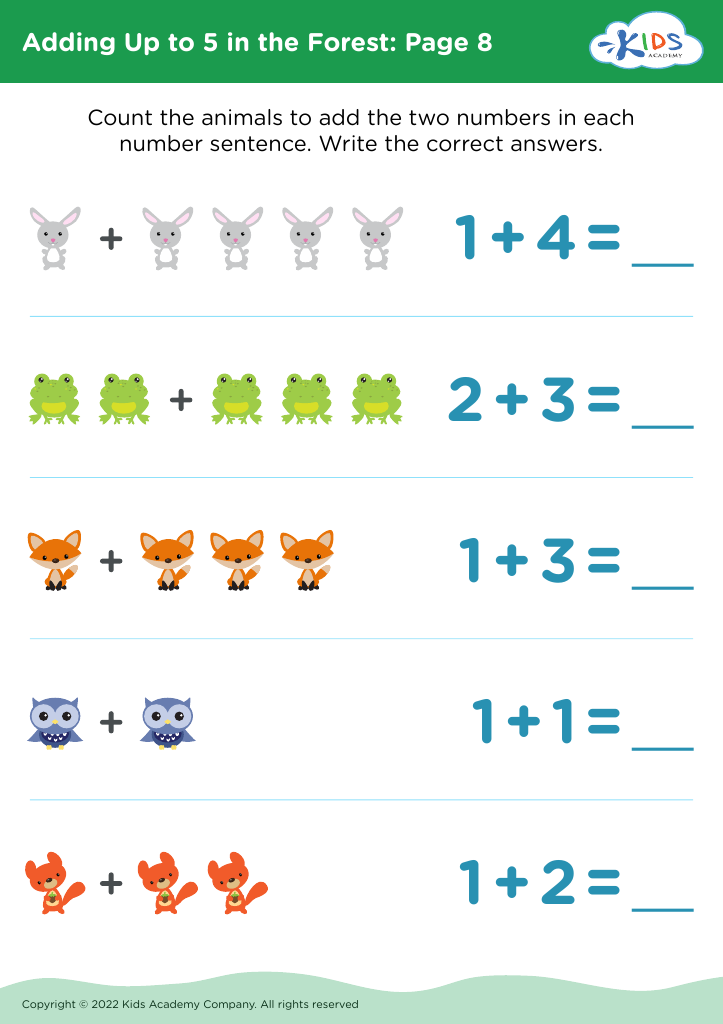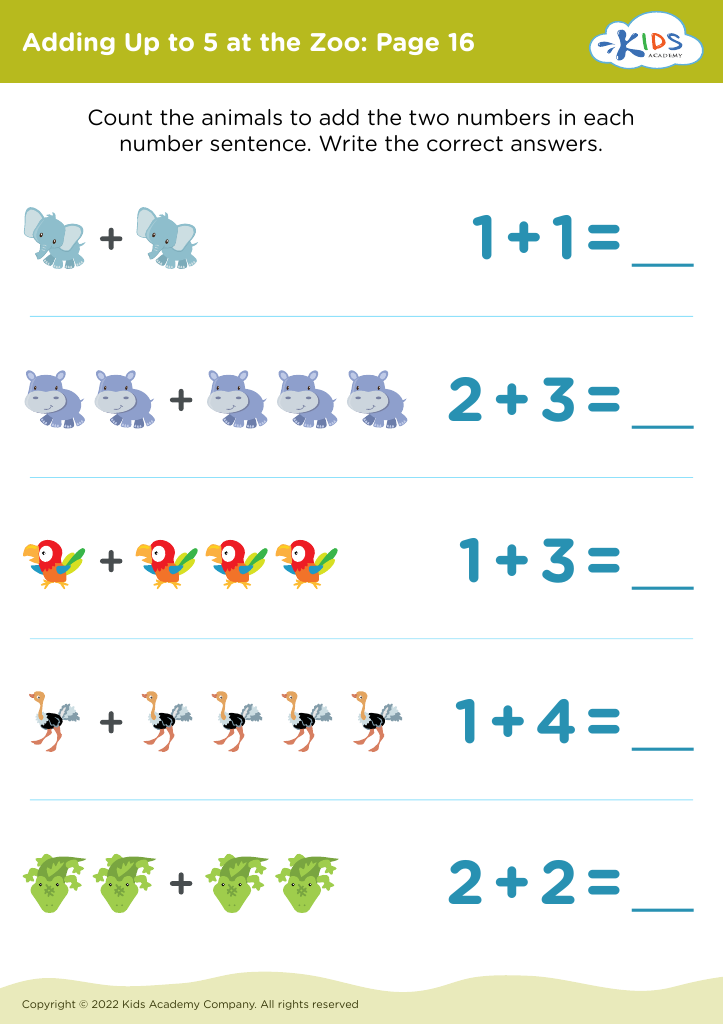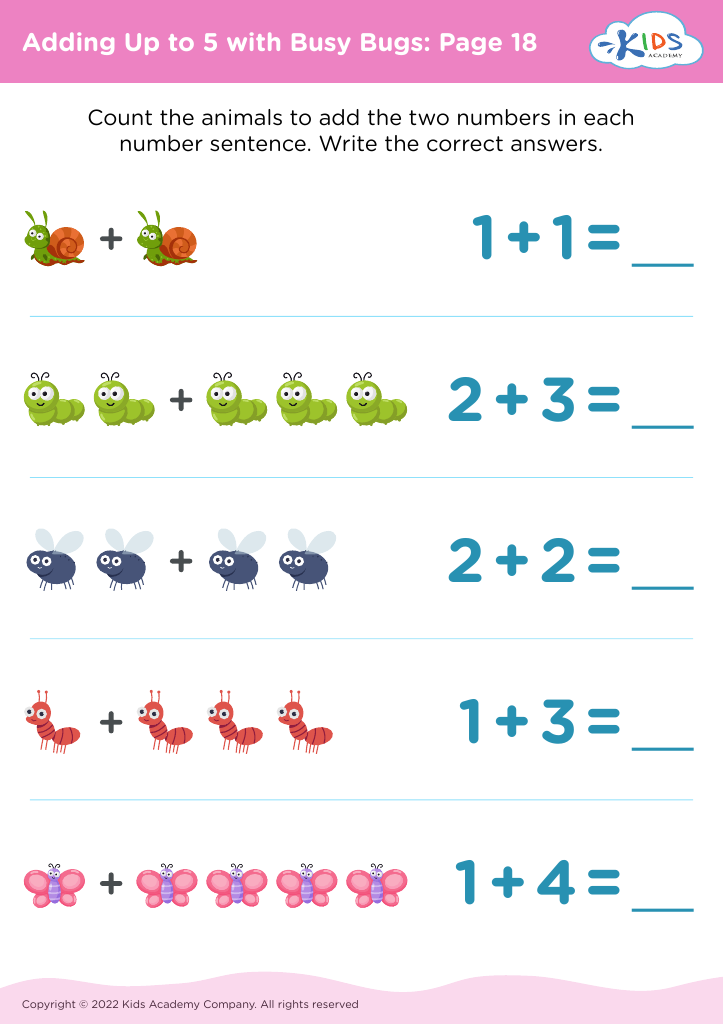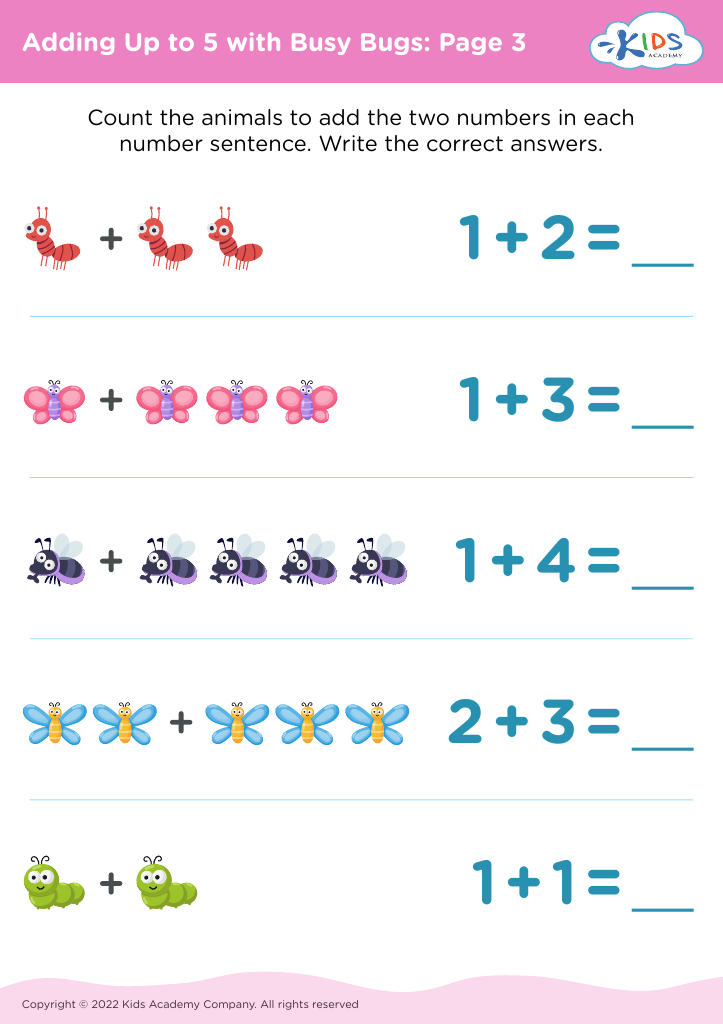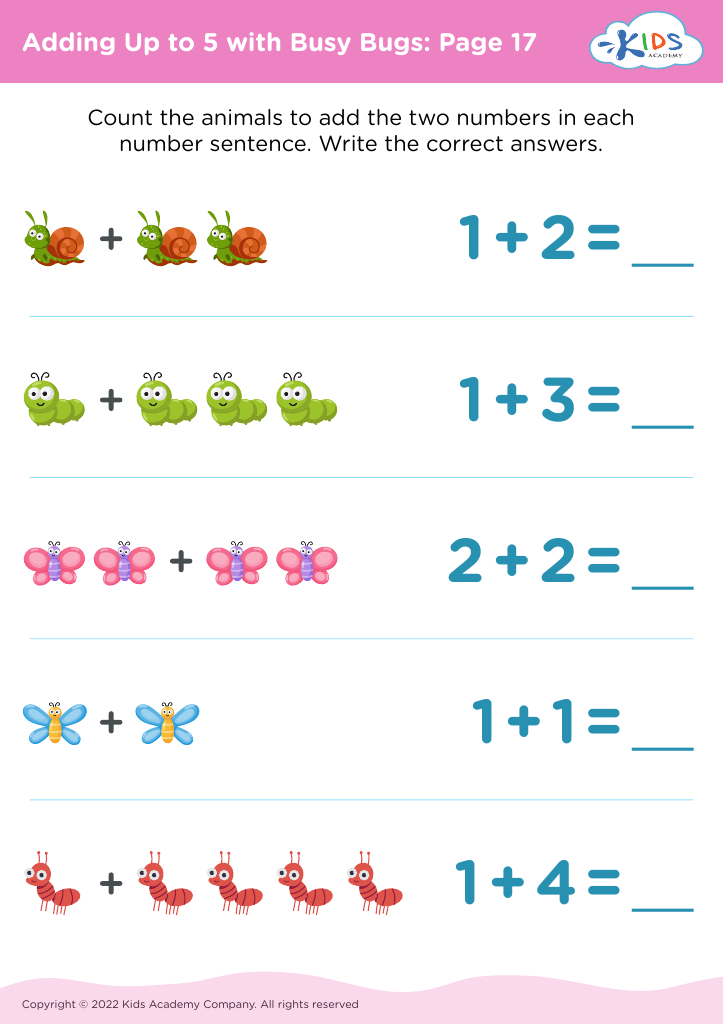Developing Concentration Addition Worksheets for Ages 3-6
5 filtered results
-
From - To
Enhance your child's early math skills with our Developing Concentration Addition Worksheets designed specifically for ages 3-6. These engaging worksheets focus on building concentration and attention while introducing fundamental addition concepts. With vibrant illustrations and age-appropriate exercises, children will enjoy practicing their addition skills in a fun and interactive way. Our worksheets encourage cognitive development and help young learners master essential math skills through playful activities. Perfect for home or classroom use, these resources aim to create a solid foundation in mathematics while fostering concentration and focus in young minds. Start your child’s mathematical journey today!
Developing concentration and addition skills in children aged 3-6 is crucial for several reasons. Firstly, this stage is a key period for cognitive development, where young minds begin to form the foundations of mathematical understanding. Concentration helps in enhancing their ability to focus, thereby fostering better learning habits essential for future academic success. Engaging children in activities that require them to concentrate can improve their attention span, making them more receptive to learning.
Additionally, introducing simple addition concepts at this age not only aids in numeracy development but also enhances critical thinking and problem-solving skills. Through interactive games and playful activities, children can learn to recognize numbers, understand quantities, and grasp early math concepts in a fun and engaging way.
Moreover, building a strong base in concentration and addition instills a sense of confidence and achievement in young learners. This early success can motivate them to take on more challenging mathematical concepts. For parents and teachers, fostering these skills sets children on a path toward lifelong learning, ensuring they are well-prepared for academic and personal challenges in the future. Ultimately, investing in the development of concentration and addition creates a positive learning environment that benefits the child immensely.

